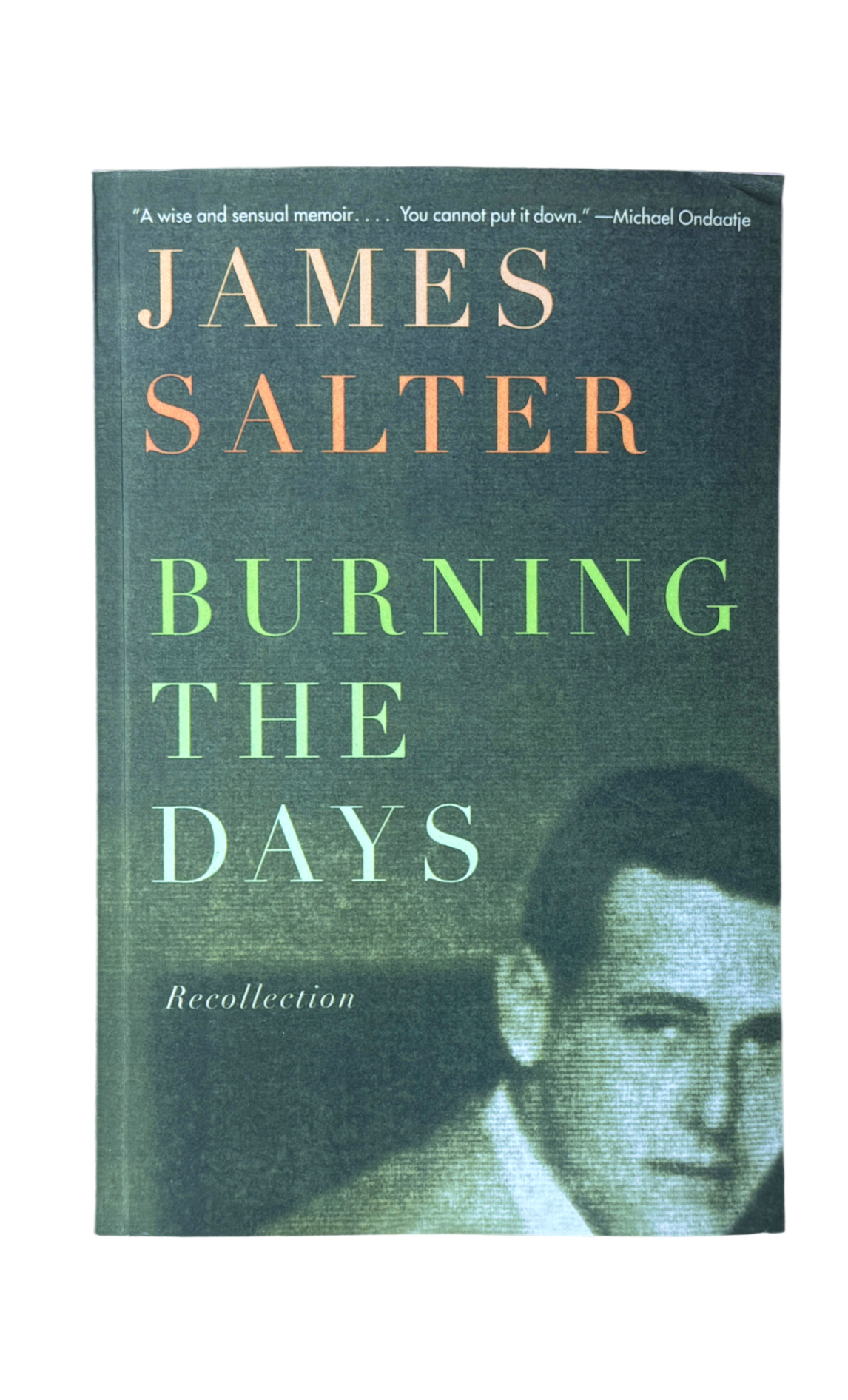Burning The Days
by James Salter

Recounting his years as a fighter pilot and writer, Salter's nostalgic and melancholic memoir drips with a Don Draper-esque masculinity.
There are a few, old fighter jets propped up throughout Civitella di Romagna, a small comune in the Italian region of Emilia-Romagna. They put a smile on my face when I drove past them a week or so ago, as they immediately reminded me of James Salter, whose recollections I was reading at the time. James Salter, the writer of novels, short stories, screenplays and other works, and former Air Force fighter pilot.
I didn't know much about him when I started reading the book. I'd read A Sport and a Pastime, his 1967 novel. Burning The Days came highly recommended by a dear friend, and is mentioned often in bookish podcasts. Salter is a writer's writer, you see, and his works, by most, are highly regarded.
Early on in Burning The Days, Salter makes it clear he's not going to turn his life inside-out. He likens a life to “a large house with various rooms, visitors and occupants” and, he says, “at some windows you may wish to stay longer, but alas. As with any house, all within cannot be seen”. We are to learn about his life, sure, but the person will remain somewhat shrouded in mystery.
The first half of the book is dedicated to his life as a West Point cadet and fighter pilot in the Air Force, and its writing is electric. You can feel the adrenaline when he describes chasing MiG fighter jets over Korea, the shame when he explains a landing gone awry, the terrors of losing a friendly pilot, or the craft, elegance and beauty that come with flying a jet.
Here, on airfields to remember:
“Apart from those that finally appeared when you were coming in, nose high, in fog or heavy rain, the most beautiful field I ever saw was in Morocco, down towards the south. It was called Boulhaut, a long, flawless black runway built for strategic bombers and never used, the numbers at each end huge and clear—no tire had ever marked them. You could not but marvel at its extraordinary newness.”
I, too, want to touch down on that airfield. Or here, on his first solo flight:
“I felt at that moment—I will remember always—the thrill of the inachievable. Reciting to myself, exuberant, immortal, I felt the plane leave the ground and cross the hayfields and farms, making a noise like a tremendous, bumbling fly. I was far out, beyond the reef, nervous but unfrightened, knowing nothing, certain of all, cloth helmet, childish face, sleeve wind-maddened as I held an ecstatic arm out in the slipstream, the exaltation, the godliness, at last!”
His writing about this whole period of his life is effortlessly ecstatic.
In the second part of the book he digs deeper into his life as a writer (he left the Air Force after the publication of his first novel). Loosely chronological (these are recollections, after all), he romantically outlines time spent in various European cities (Paris, Rome, Bologna), dinners or meetings with writers, actors, agents and musicians (Hemingway, Robert Redford, Yoko Ono, Roman Polanski); long days and longer nights.
Vividly he describes his years spent toiling away, writing screenplays and books, driving around to meet interesting characters (or, primarily, women) in cafés and restaurants. Snapshots of a life that seems at once well-lived—and, in many ways by now, out of fashion—Salter's nostalgic and melancholic memoir drips with a Don Draper-esque masculinity.
Burning The Days possesses a kind of mystical quality. Salter manages to get the magic of his life and of his writing across while keeping his readers at an arm's length. We can peek through one of his windows in admiration until he decides to draw the curtain, leaving us hastily scurrying towards the next.
Late in the book, a woman asks Salter what he wants. A friend replies on his behalf: “To be an immortal”.
Little did he know.
Burning The Days by James Salter
First published by Random House in 1997
Re-published by Vintage in 1998
